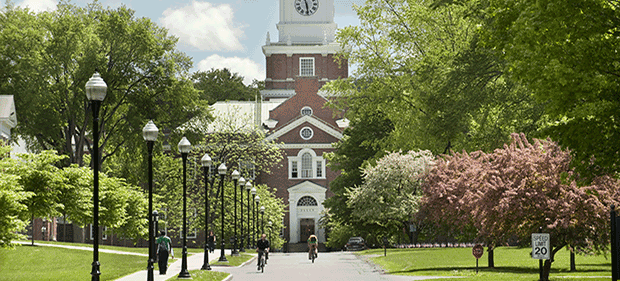
It is the beginning of the end, so to speak, of our more unassuming and simple times at Dartmouth. It’s the beginning of the beginning of when we must take our curricular and extracurricular commitments more seriously.
It’s a rite of passage to be a Dartmouth underclassman and hear glorious tales of Sophomore Summer from upperclassmen and young and old alumni alike. Swimming in the river, living with your pledge class in your Greek house, beautiful summer weather with no negative degree days – what could be a better term at Dartmouth?
But beyond lazy days on the Green or rowdy nights in the basement, the Sophomore Summer tales tend to leave out an even more important aspect of the summer, about how it is a crucial inflection point in our lives at Dartmouth. It is during this period that we are forced to answer questions about how we will balance our time and energies at Dartmouth in between our academic, social, and professional pursuits during our last two years as undergraduates. Many will ascend to campus leadership positions, rethink academic plans, or make a first, formative professional move through summer corporate recruitment. Others are forced to interiorize broader systemic changes in campus social dynamics – the most obvious one being that we are no longer underclassmen followers but rather upperclassmen leaders – for the first time in their time at the College. As we make or do not make these crucial steps and considerations this summer, our identities and personal legacies at the College begin solidifying.
It is the beginning of the end, so to speak, of our more unassuming and simple times at Dartmouth. It’s the beginning of the beginning of when we must take our curricular and extracurricular commitments more seriously. Indeed, Sophomore Summer is the first time that a Dartmouth class collectively gets to run campus. The plethora of campus organization leadership positions that are prefaced with “Summer” is testament to this change. Summer presidents of fraternities, for instance, must for the very first time deal with the Augean task that is running a fraternity house of college-aged men. They must deal with balancing bureaucratic Inter-Fraternity Council (IFC) meetings, rowdy chapter meetings, and intrusive Safety & Security (S&S) walkthroughs. On top of these meetings, fraternity presidents must usually stay sober and alert during fraternity events to keep the situation in check should S&S drop a less than pleasant visit. Each of these tasks are hardly unimportant; in the post-Moving Dartmouth Forward era, a fraternity is but one small violation away from crippling disciplinary probation. This is a stark difference from merely being a non-officer underclassman brother who, at worst, must deal with an annoyingly timed door duty or basement cleanup just one term prior.
The different ways in which people respond to these shifts around them are tales I believe underclassmen should hear more about. On one hand, I’ve noticed that many ‘17s who so enjoyed the rest of their sophomore year – in between it being their first, responsibility-free year in a Greek house to developing a broader sense of purpose in curricular and extracurricular pursuits – are now jaded with campus life as a whole. These same folks yearn for their off-terms, whether it be a study abroad or a research project or an internship, just for the change in environment. On the other hand, many ‘17s have renewed their broader sense of purpose. The flow of intensity in their various pursuits at Dartmouth this summer has helped quench their thirst for purpose and accomplishment.
On an individual level, these dichotomous trends manifest in numerous ways. Many people on both sides of the fence during Sophomore Summer embrace a lethargic degeneracy. Many of the ‘16s I know who perhaps spend too much time playing pong and ignoring academics or professional pursuits adopted such lifestyles and mentalities during Sophomore Summer. At the same time, many of those who are the opposite and perhaps spend too much time concerned with academic or professional pursuits are as they are because of the lows or highs they experienced during their Sophomore Summer.
I write this during Week 9 of our Sophomore Summer. By this point, we ‘17s have gone through – as scary as it is for me to write this – nearly 90% of our first and last Sophomore Summer. These aforementioned character changes exhibited by the ‘16s have been well established among the ‘17s. Looking around my peers and friend groups, it’s already clear to me who intends on spending the next two years shooting for the most coveted of jobs or graduate school spots or research publications, and who intends to spend the next two years on markedly more “social” pursuits.
Dartmouth is unique in that one can cross the bridge after graduation having adopted either path and leave with an acknowledged sense of accomplishment, and I am certainly no one to prescribe either path as the better one. That all of this happened during our ‘magical and mythical’ Sophomore Summer is fascinating in itself, and perhaps this term being such an inflection point is something that we as upperclassmen ought to mention to eager freshmen and sophomores who come to pass us.

Be the first to comment on "A Summer of Inflection"